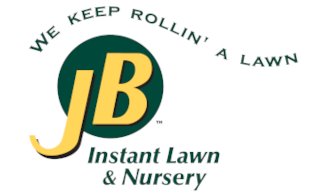
JB Instant Lawn Blog
Soil pH and Lime Applications
Aug 6th, 2015
So... what is pH exactly- and why is it important in the world of turfgrass lawns?
pH - stands for potential Hydrogen. It is a numeric scale used to measure acidity and alkalinity based on the activity of the Hydrogen ion. But we will make an effort to avoid a chemistry lesson- starting now :)
As you fall below 7 on this numeric scale (*7 being neutral) your soil becomes more acidic. Above 7 and your soil is more alkaline. All plants- including turfgrass lawns thrive under certain soil pH levels.
To keep your lawn healthy- it is best to aim for these ideal pH levels for peak availability of nutrient and elemental uptake, resistance to pest problems and to facilitate thatch decomposition.
When it comes to Perennial Ryegrass and Tall Fescue varieties- anywhere on the pH scale from 6.2 to 7.2 will usually be satisfactory- outside these pH levels either way- you will begin to see negative results.
Oregon's Willamette Valley for example - is known to have acidic soil in many areas.
In addition- fertilizer applications containing Ammonium, Sulfur, etc. can further acidify soils.
Liming applications are often used to 'sweeten' the soil in these situations annually or in some cases every other year- moving the pH back up the scale.
Fertilizer applications as mentioned above can assist in acidifying the soil if needed. (but be careful/aware some of these products have potential to burn turf)
Liming of turfgrass areas can be done anytime of year- but Fall is generally considered to most effective. If your pH levels are particularly low and acidic- then you will want to apply again in the Spring and continue this approach until you have reached the desired pH level.
Liming products can be purchased at many retail locations and provide specific label instructions for use.
If your lawn is in tip top shape- chances are your pH is well within the acceptable range. But if seem to be doing everything right and results are subpar- check those pH levels!
